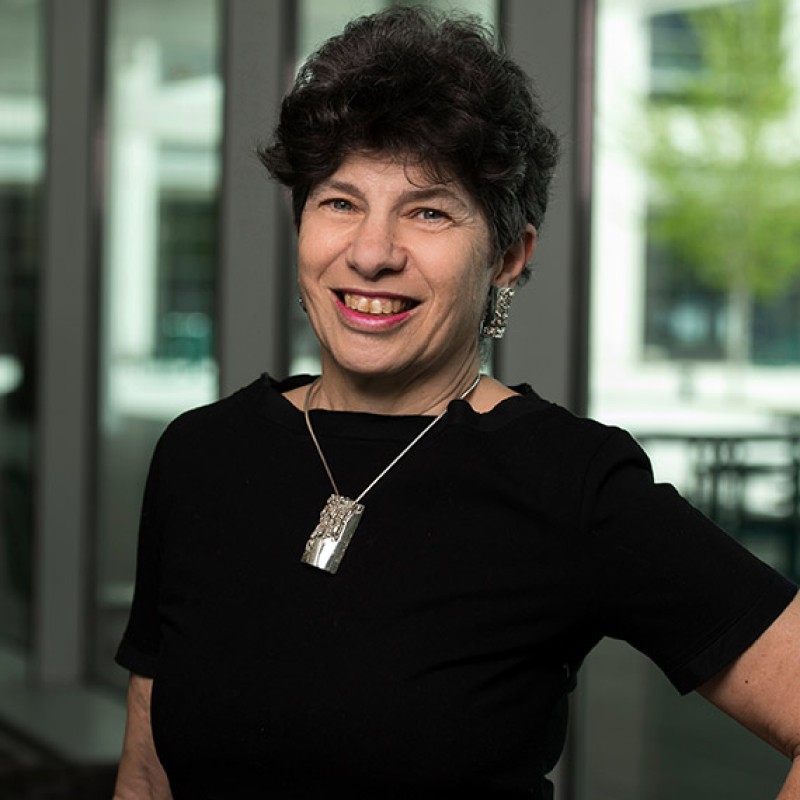A €230 billion money laundering scandal put Danske Bank ahead of a record 22 other contenders to win the 2018 Corrupt Actor of the Year award from the Organized Crime and Corruption Reporting Project.
For the past seven years, the non-profit media organization has spotlighted the individual or institution that has done the most over the previous 12 months to advance organized criminal activity and corruption in the world.
“Danske Bank is a worthy recipient of this prize. It highlights the role of the criminal services industry in enabling international corruption and crime,” said OCCRP co-founder and editor Drew Sullivan. The term “criminal services” refers to the banks, law firms, registration agents, accountants, and others who help criminals and corrupt officials hide their assets and legitimize their operations.
“In the past 20 years, they’ve globalized organized crime and autocracy and helped everyone from Mexican drug cartels to Russian President Vladimir Putin to terrorists, autocrats, and almost every global threat,” he said. Sullivan was one of nine judges who made the final selection. Nominations were submitted by journalists and the public.
Finalists for the award meant to identify the world’s most influential rogues included:
Russian President Vladimir Putin, a former OCCRP Person of the Year;
Hungarian President Viktor Orban, who has enriched himself and his friends while cracking down on migrants and turning his country away from democracy;
Saudi Arabian Crown Prince Mohammed bin Salman, implicated in the death and dismemberment of US-based journalist Jamal Khashoggi, as well as in jailing dissidents and shaking down and torturing rivals;
US President Donald Trump, whose charitable foundation, family business, and presidential campaign are embroiled in investigations.
In the end, the OCCRP jury settled on Danske Bank for the role its Estonian branch played in allowing billions of dollars to be laundered over the past decade. The Guardian newspaper has described the most recent scandal as involving “32 currencies, companies from Cyprus, the British Virgin Islands and the Seychelles.”
In one operation, billions of dollars flowed through Danske’s Estonian branch from Azerbaijan to offshore companies, high-ranking officials, and even European politicians who praised the nation’s regime despite its chronic human rights abuses, according to an OCCRP report.
“In Azerbaijan, Danske Bank was the conduit for bribes, parking stolen assets, and the theft of national resources for one of the most vindictive and corrupt regimes in the world,” said Paul Radu, OCCRP co-founder and judge. “The corrupt Aliyev family couldn’t have done this without the bank.”
This November, Denmark’s state prosecutor accused the bank of failing to institute risk management and control systems at its Estonian business. Prosecutors allege that managers in Copenhagen failed to ensure the branch’s compliance with the Danish Anti-Money Laundering Act.
The bank is also being investigated by the U.S. Justice Department and, according to Bloomberg News, has admitted that its Estonian branch was a central causeway for illicit funds from the former Soviet Union. About $230 billion in transactions are under scrutiny, Bloomberg reported.
In 2013, the head of the bank’s Baltic trading unit, Howard Wilkinson, warned the Danske executive board in Copenhagen about suspicious activities in Estonia. But Wilkinson’s warnings were ignored.
Danske Bank Estonia has also been implicated in other money-laundering schemes.
An OCCRP investigation — the Russian Laundromat — revealed that $20 billion to $80 billion was fraudulently moved out of Russia through a network of global banks that included Danske.
Danske stock has plunged by half in the last year amid a separate European Union investigation and as other inquiries proliferate. Bank officials, including Chief Executive Thomas Borgen, have been forced out as the scope of the scandal emerged.
The Danske Bank operation demonstrates “the structural nature of corruption,” said South African anti-corruption activist Hennie van Vuuren, a judge in the OCCRP vote.
It’s “high time that we focus on the enablers and not just the low-hanging offensive political fruit,” van Vuuren said. “Nothing shows up our glaring blind spots more than this bank. It ran a money laundering enterprise on such a massive scale that it startled most of us. And yes, it should shake the anti-corruption ‘community’ to its roots that the bank is based in Denmark — a country that Transparency International has consistently labeled as amongst the top three ‘least corrupt’ for more than two decades.”
Philippine President Rodrigo Duterte was OCCRP’s Person of the Year in 2017. The only previous time judges selected an institution rather than an individual was in 2013, when the award went to the Romanian Parliament after it took steps to decriminalize bribery and other forms of corruption.
OCCRP serves as an investigative reporting platform for 46 member centers that stretch from Europe to Central Asia and across the Atlantic into Latin America. It works to advance public understanding of how organized crime and corruption affect lives by advancing sharper coverage of corruption and producing in-depth, cross-border investigative stories.
The Swedish Development Agency, USAID, the Danish Government, Luminate, the Open Society Foundations and other major international donors support OCCRP, which has offices in Sarajevo, Bucharest, Riga, Tbilisi, and Washington DC.
The Judges

Ying Chan

Saska Cvetkovska

Masha Gessen

Carlos Eduardo Huertas

Paul Radu

Rana Sabbagh

Louise Shelley

Drew Sullivan

Hennie van Vuuren
Previous Winners of OCCRP’s Person of the Year Award:

Rodrigo Duterte

Nicolás Maduro

Milo Djukanovic

Vladimir Putin

Romanian Parliament

